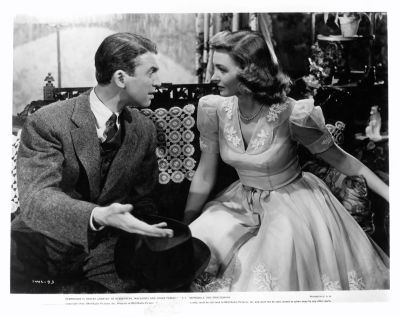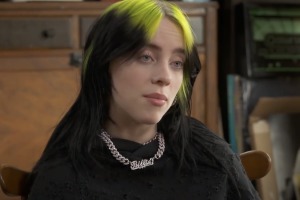Why we love 'It’s a Wonderful Life': An other-sex comparison with 'Pride and Prejudice'

Two of my favorite all-time films (top 5) are "It's a Wonderful Life" (IWL) and the BBC TV series "Pride and Prejudice" (P&P). In this, I am hardly alone. Both are widely acknowledged to be perennial classics. But why such enduring appeal, apart from the great character actors that stock each film? I suggest that an important reason why is that each presents the ideal image of the interrelationship of the sexes, one from a man’s perspective, the other from a woman’s.
My view was stimulated by my reaction to an excellent article on the role of Mary Hatch in IWL, an article both insightful from a feminine perspective and deficient so far as the masculine perspective is concerned: “There Is No Mary Problem in ‘It’s a Wonderful Life.’”
A few asides to clear away some objections to my naming of the BBC version of P&P: Yes, I know that the BBC version of P&P is not technically a movie film. And, yes, I know there is the Keira Knightley movie version but please don't try to compare that to the Jennifer Ehle version because you will only hurt yourself. And, of course, the two-centuries earlier Jane Austen novel on which the film is based is outstanding in its own right, of course. But let's not get hung up on these asides.
An other-sex ideal
"It's a Wonderful Life" is a man's film; "Pride and Prejudice" is a woman's film (not an earth-shattering conclusion, I realize). Yet that doesn't make either film restricted to one sex or the other because they are both films with universal themes and universal appeal. People of both sexes love both (the first words of this post indicate that). That said, one is more driven by the masculine perspective, the other by the feminine perspective.
It is incontestable that the center of IWL is George Bailey (Jimmy Stewart) and the center of P&P is Elizabeth Bennet. The movie revolves around their journey in life, their thoughts, hopes, and dreams. Even so, neither story works apart from the other-sex counterpart. There is no fascinating Lizzy apart from Mr. Darcy (who practically doesn't even have a first name, though it is Fitzwilliam), no interesting George apart from Mary (Hatch, then Bailey). But each other-sex counterpart is portrayed from the vantage point of the hero or heroine. What does the woman watching P&P love about Mr. Darcy, and what does the man watching IWL love about Mary? Something different in both cases, but also something the same.
Yes, looks play an important role in both cases. Mr. Darcy is handsome and Mary is a "hot babe" but in a wholesome sense (like a Mary Ann as opposed to a Ginger; forgive the pedestrian "Gilligan's Island" allusion). But beyond those essential-superficial features (and, men, I know this is hard but try) there is something yet more significant in the other-sex counterpart: Each ideally satisfies what the main protagonist wants most from an other-sex ideal spouse.
Mr. Darcy as Lizzy’s other-sex ideal from a female perspective
Mr. Darcy provides Lizzy with protection through his vast wealth, and this is not a small point of the reason why he is so tantalizing. One gets glimpses of this throughout the film and book. But Lizzy is not one of her silly sisters (notably, Lydia). Her search is for something deeper. Character, certainly. But what about his character? I think that it is Mr. Darcy's humility, set against the backdrop of his high socio-economic importance.
Much of the plot line of P&P revolves around Mr. Darcy's supposed, vaunted pride (as the title suggests). While Lizzy discovers that much of her "prejudice" concerning Mr. Darcy is overblown, it remains true that his redemption comes from his display of humility, particularly in regards to Lizzy and her family: Abasing himself by putting her interests, and the interests of her family, above his own, or (if you will) putting her honor above his own.
The most satisfying element of the film (book) occurs toward the end when, after having rescued Lizzy's family without taking personal credit for it, Mr. Darcy confesses to Lizzy, “I have been a selfish being all my life. As a child I was ... given good principles, but left to follow them in pride and conceit." It's not entirely true, of course. A lifelong servant of the Darcy household has already attested that from his youth he has been the best of men, falsely viewed as prideful by others. But it is what every woman wants to hear from the man she loves because it puts her interests above everything else.
Mary as George’s other-sex ideal from a male perspective
For men, the most wonderful part about Mary is the loving esteem that she holds him in. They have a wonderful repartee before, during, and especially immediately after the swimming pool scene in which Mary's loving esteem for George shines. The romantic banter or verbal dance between George and Mary, he dressed in silly ill-fitting football garb, she tantalizingly dressed only in a robe, is unforgettable, replete with the metaphor of lassoing the moon for Mary.
More important than even her conversation, though, is the way she looks at him and what she does to support him. Her gaze at him when she sees him at the high school dance is unforgettable, as also at the phone when George is trying to resist being ensnared by Mary. It is the gaze that every man wishes for from the woman he desires most.
It is well expressed when she explains to a discouraged George that she married him because "I want my baby to look like you." So highly does she esteem her husband, that she gives him the greatest tribute that she can give him: There is no one whom she would want her new creation to emulate more than her own husband.
Though their relationship is tested when George, long into married life and likely to face prison for a mistake of his daft Uncle Billy's misplacement of the money from the Bailey Building & Loan, Mary briefly utters her unfinished sentence ("George, why don't you..."), she recovers to scatter across town, telling all that her husband is in trouble and needs their help.
The ideal woman is the upholder of the man’s better self
At the end of the film, when the town rallies around their unsung and misjudged hero, George Bailey, it is Mary's shining adoration of her husband that stands out most of all. It is Mary who holds up to George her high vision of who he is, who he can be, and who has always and only been, which holds George up in his hour of greatest need, with little criticism and a ton of sustaining support.
Not a support that says, "Do whatever you want," but a support that says, "You are still the man whom I hold in highest loving esteem, whatever the setbacks." Of course, she can take this approach because George is in fact "a man of high ideals," even if he himself is not immune from falling off his horse at times.
The old Tammy Wynette country class, "Stand by Your Man," has not worn well in an era emphasizing women's liberation from oppressive patriarchy. Yet the stand-out line remains an enduring hope for men who deeply desire such loyal esteem in their women.
A male, his woman, and a wider horizon
One other thing: While Mr. Darcy is the embodiment of Lizzy's hopes, George still has a wider horizon in view than just Mary, as absolutely vital to his life as she is. I'm referring to George's standing in the public square. His desire is to make something of his life by achieving some great good.
Mary knows this, and she knows that she is of critical importance in helping him feel that his life has not been meaningless but rather, as the angel Clarence communicates to George, his life is worth something. Or, as his brother Harry toasts him at the end of the film, he is, in other than just a monetary sense, "the richest man in town." The opposite of what mean old Potter says to him: "You're worth more dead than alive."
When George is given the "great gift" of "the chance to see what the world would be like without you," he learns that his life has had meaning, made a difference, to so many others. That is what makes it "a wonderful life." It is as Clarence says to him: "You see George, you've really had a wonderful life. Don't you see what a mistake it would be to just throw it away?"
When watching the film again for the umpteenth time, I noted following the scene when George kicks a car door after seeing again a rich and successful Sam Wainwright and his jewel-bedecked new wife, "Why isn't he just satisfied with having such a great wife of his own?"
The moon that George lassos
The answer is that it is deep in many a man's soul to want to be somebody. I'm tempted to say, "Sorry, ladies, but this is the way men are made." Yet I think that this is part of what women love in a man, so long as that "wanting to be somebody" includes them. Mary wants George to lasso the moon for her, with an emphasis both on "the moon" (which he has to get) and "for her" (which he has to give).
Of course, as Jesus taught us, one can become somebody only by denying oneself, taking up one's cross, and losing one's life. That is what George Bailey finds out, to a certain extent, at the end of the film. And that makes this movie the most inspirational film ever made.
I suppose that, in the end, both films describe the other-sex ideal in terms that are similar: Someone eminently desirable who puts my interests over his or her own. Yet both films do so in ways that reflect male-female complementary differences, each with its own validity.
Robert A. J. Gagnon is Professor of Theology at Houston Christian University.



























